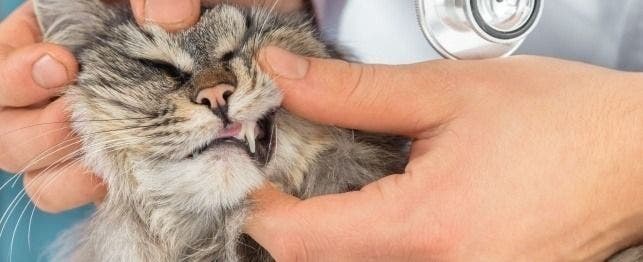
When Your Senior Cat Needs to See a Vet
Senior cats should ideally get routine twice-yearly veterinary exams. Small changes in behavior can be normal, however there are certain symptoms that should concern you.
If you notice any of the symptoms detailed in this article you should report them to your veterinarian as soon as possible. Any one or more of the following symptoms could be caused by a range of minor or major illnesses.
Remember, it’s not your job to diagnose the disorder. It’s your job to observe your cat, evaluate all of his bodily functions and report his symptoms to your veterinarian as soon as possible.
If your cat is having severe symptoms such as struggling to breathe or loses consciousness, take him to your veterinarian immediately.
Your Senior Cat Needs to See a Vet When He . . .
- Drinks water or urinates more often than usual
- Loses weight
- Is unusually hungry
- Vomits repeatedly
- Has diarrhea lasting for more than 3 days
- Finds it difficult to pass stool or urine
- Forgets his litter box habits
- Exhibits lameness for more than five days or in more than one leg
- Has trouble seeing
- Develops open sores on the skin that persist for more than one week
- Develops a foul mouth odor or drools excessively
- Appears to gain weight only in his abdomen
- Spends more time than usual sleeping or gazing into space
- Loses hair or scratches, especially if only in specific areas
- Is unable to eat dry food
- Collapses suddenly or has a bout of weakness
- Has a seizure (convulsion)
- Coughs or gags often
- Has bleeding from the mouth, nose or rectum
- Has a significant decrease in appetite or doesn’t eat for more than 2 days